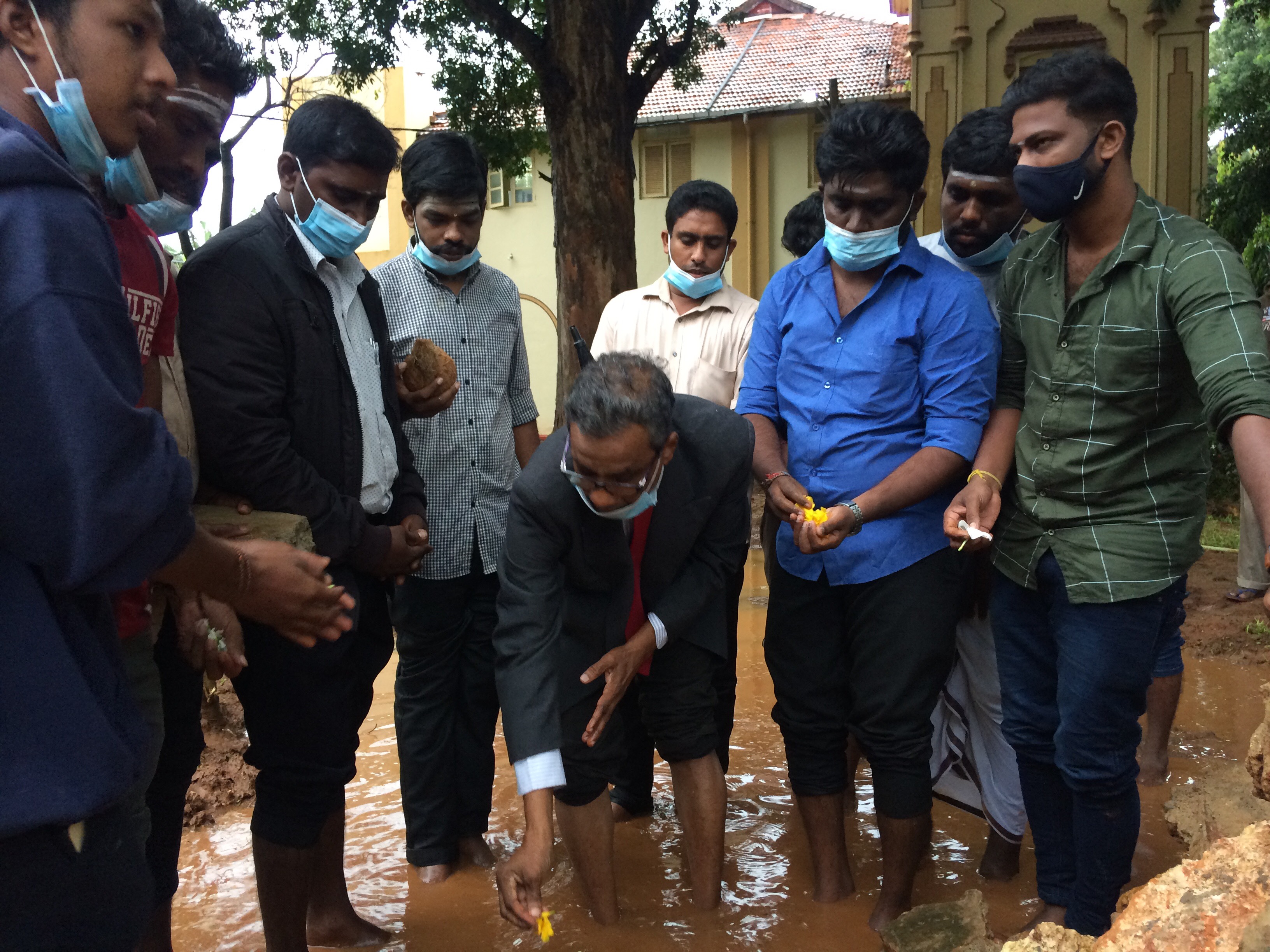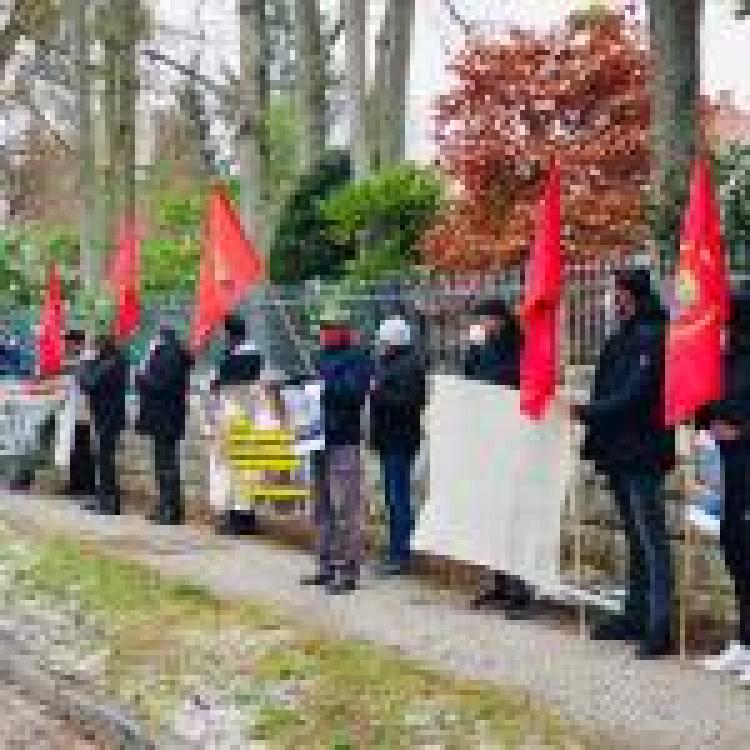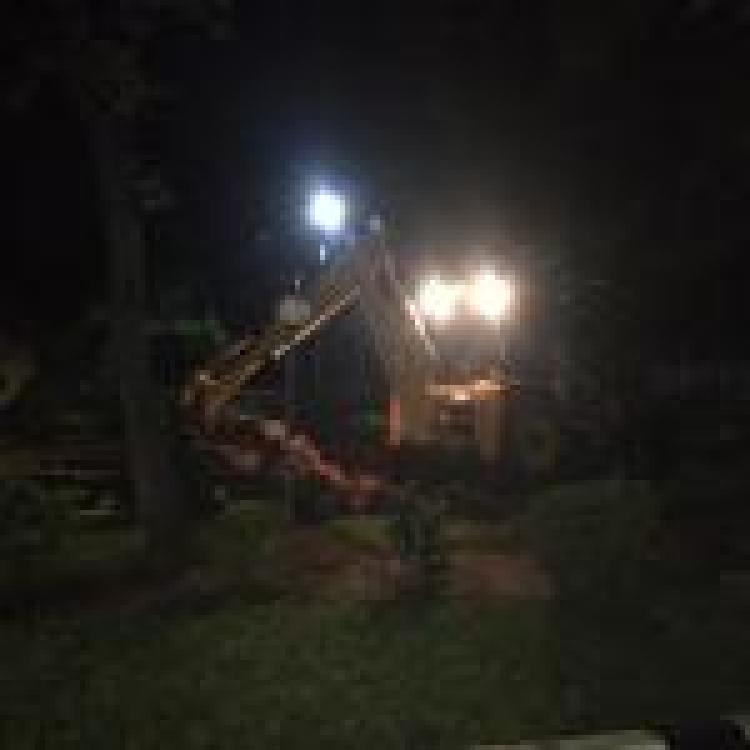
Jaffna University students and staff and the wider Tamil community have expressed scepticism over promises to rebuild the destroyed Mullivaikkal monument on campus. The monument was destroyed under cover of night on Friday sparking a wave of backlash and protest. A group of Jaffna University students undertook a hunger strike, demanding the monument be rebuilt. A hartal was called across the North-East, and businesses remained shut on Monday. Muslim leaders also lent their support, with Muslim businesses participating in the hartal in solidarity. Meanwhile outside the island, elected officials from Canada to Tamil Nadu expressed their outrage, and Tamils in Toronto, Berlin and Chennai held rallies, while social media campaigns from the Tamil community around the world went viral.
Amidst this growing tide of global pushback, the Vice Chancellor of Jaffna University made the surprise move on Monday morning of reaching out to the students, assuring them that the monument would be rebuilt, and laying down two foundation stones in a symbolic gesture. This move secured an end to the students’ hunger strike, bringing relief to those students who were suffering from a deterioration in their health after three days of fasting outdoors in the rain.
However, the Vice Chancellor has since implied that rather than a rebuild of the Mullivaikkal monument, a ‘peace monument’ will be built in its place, aggravating Tamil concerns about the authenticity of his promises. The foundation stone laying has been described by some as a farce to defuse the global attention on the destruction of the monument, and defang the momentum of protests, particularly of the hartal, which created a remarkable show of Muslim and Tamil unity.
Students have come together and gathered momentum. Unity amongst Tamils and Muslims in the North-East has been noticeable. Tamil Nadu has gathered in droves after a long time. The diaspora has also stood united. It is to handle these developments and defang the issue that the government has taken such an action. The government will never allow the reconstruction of the monument through legal means. Even if it was reconstructed, it won’t be a memorial structure.
Tamil Heritage Forum
While the destruction of the monument has caused outrage as an attack on Tamil memorialisation, the Sri Lankan government through the University Grants Commission has attempted to downplay the issue, portraying it as an administrative dispute between university students and authorities. “This has become a huge problem,” the Vice Chancellor said at the time. “It has become a controversy in Tamil Nadu. The government has instructed me to resolve this issue amicably.” He is also reported to have told police that the goal of laying the stones was to ‘placate the students’, and ‘solve their anxieties.’
The multiple war ‘victory’ monuments that scar the North-East embody the anxieties that Tamil people have about a monument constructed under the instruction of the government. As one civil society member states, “the government will never allow the reconstruction of a memorial for those who perished at their hands.”


